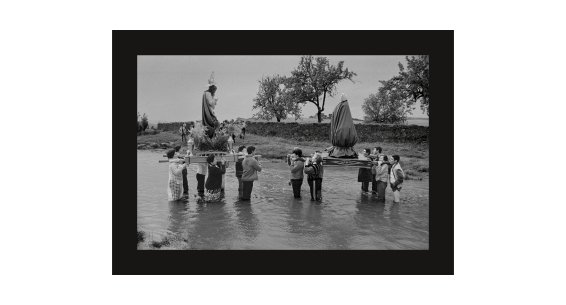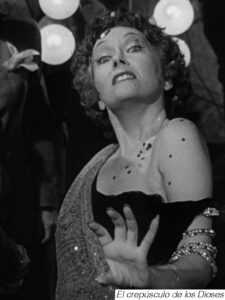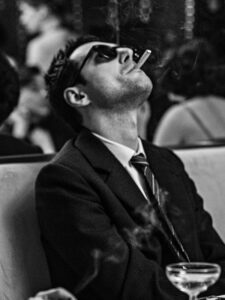Original title: pain and glory· Pedro Almodóvar · Spain · 2019 · Script: Pedro Almodóvar · Interpreters: Antonio Banderas, Asier Etxeandia, Penelope Cruz…
Original title: Maya· Mia Hansen-Løve · Francia · 2018 · Script: Mia Hansen-Løve · Performs: Roman Kolinka, Suzan Anbeh, Judith Chemla…
The first thing to keep in mind when approaching a film like pain and glory, latest film by La Mancha director Pedro Almodóvar, is that it is, precisely, of that: from an Almodóvar film. And if, Some may reply that, somehow, all Almodóvar's films are the same. We could go further and say that, somehow, all the films by many of the directors that we would ascribe to that label known as “auteur cinema”, They are or have something of that world of those who have designed them.. The problem is that, while in other cases that inner world is projected into a fictional device to construct a story that emotionally involves the public., to the own world of the one who is going to witness the work, here it's different. And it is that pain and glory It doesn't make the slightest sense without the real Pedro Almodóvar. Let's say, to understand us, what pain and glory It is not just a film by director Pedro Almodóvar, is that it is a film “about” Pedro Almodóvar. There is no in pain and glory another matter to elucidate that he himself, their own existential worries. It is impossible, consequently, apprehend this film without a minimum knowledge of its biography or, at least, of something that, over the years, the director himself has told us in interviews or in chronicles of all kinds. Just so, the film will manage to establish the connection necessary for its scaffolding to work. Otherwise, it would be what in the mathematics of our childhood was called an empty set, a hollow shell. The question that should be asked is: as you can see pain and glory future generations, when Almodóvar's media figure has already faded? Who knows. However, we are in the present, and in this present pain and glory works perfectly, to the point of bringing us what may be one of his best proposals in a long time.

pain and glorytells us the story of Salvador Mallo, a mature film director who feels trapped in a kind of creative block. Salvador cannot conceive his life without his profession, but something prevents him from facing a new project. Little by little, through conversations and memories rescued from his memory, will undo the knot that binds your creativity. In the middle, the evocation of his relationship with his mother, his childhood, his first carnal relations, his friendship with an actor with whom he has not spoken for decades, a lost love, the shadow of the success of his first films and, above all, their conflict with the passage of time that, little by little, it is stealing your health. After going through those chapters of his biography, Salvador will discover the path that shows him his definitive exit from the tunnel.

For his latest production, Almodóvar has composed a text that works like one of those canvases of patchwork, articulated by loose parts that, by themselves, They don't take us anywhere, but what, all together, well locked, They form a perfectly harmonious whole. A script that works as a collage and that proposes an intelligent game of times that, like a loom, It is shaped through the obsessions that have animated his personal and artistic life.. I am not a fan of the Almodóvar writer (which is not the same as talking about the screenwriter Almodóvar). His way of talking, as in so many other aspects of his personal way of composing his films, I find it excessively emphatic. However, here he shows off a really fine ear. Far from his usual soap opera dalliances, Almodóvar applies himself to taking the situations he poses to a more earthly level., less melodramatic, giving the piece a brilliance rarely achieved in his cinema and for which we have no choice but to show our sincere admiration.. Knowledgeable of the sinuosities through which it moves, Almodóvar shows off, besides, with an exquisite sense of humor, giving us endearing moments, resource that will allow you to capture the attention of an audience that will react with complicity to each of your provocations. Deliberate complicity, which is key to the success of this film and without which nothing would make sense. All of this, reveals a self-confidence that takes us back to his first films and that, starting from the same construction of the characters, ends up contaminating the entire movie, as if Almodóvar had reunited with an old toy that he hadn't played with for a long time and that he had parked in a forgotten corner of his house..

We cannot fail to highlight, in this case, the work of Antonio Banderas in the composition of this Salvador Mallo with whom he has established the best collaboration in their already long career together. Banderas would not be Banderas without Almodóvar and they both know it well. The director puts the man from Malaga at the center of the scene, managing to extract gold from a script tailored to his needs. (Although I must admit that, at times, his interpretation is closer, in his gestures, to the manners of an Antonio Gala than to those of the author of The flower of my secret). Less fortunate we found, this time, to a Penélope Cruz who, although he leaves the flag high, it seems that, in the set, He hasn't quite found the right pulse for his character, consequence perhaps of a certain Manichaeism in its construction and such a fragmented development. With them, Asier Etxeandia, Julieta Serrano or Leonardo Sbaraglia comply with solvency, but without fanfare (maybe for the same reasons), your part of the work.

But the best of this pain and glory we find it in its staging. I think I've already mentioned it once. Despite the years that Almodóvar has been involved in cinema, His way of playing with the possibilities that the camera puts at his disposal has always seemed excessively rigid to me.. An overly calculated composition of the painting that, generally, resulted in a stiff and soulless cinema, risk-free. However, It must be recognized that here Almodóvar is somewhat lighter than the formal baggage that usually plagues his productions.. I was especially surprised by the way he plays at times with the resources offered by an image that enters, at last, in a more poetic dimension or, if you want, transcendent, less obvious than on other occasions. The scene in which Alberto, the actor played by Asier Etxeandia, evoking a passage from his youth, recites a text written by Salvador for a play. Perhaps the best sequence of the entire movie.

At the antipodes of Almodóvar's cinema we find Maya, latest production by the French director Mia Hansen-Løve. Within his already solid career, a seemingly minor proposal, but what, quite the opposite, represents a qualitative leap with respect to his previous works. The test of a solid director, able to take risks and, above all, manage to get out of them.
We are in the year 2012. After several months of agonizing captivity in the hands of a terrorist group in Syria, two French journalists are released and return to their country. From that moment, Gabriel, the younger of the two, tries to rebuild his life. For it, He breaks up with his partner permanently and flees to India to spend time alone.. Over there, you will encounter a physical landscape, social and, above all, With a woman, that Maya that gives the title to the film, that will help you put things in their place.

As in the case of Almodóvar's film, Hansen-Løve offers us a piece that tells us about the burdens of the past and how these are projected onto our present.. Trying to escape a violent world, Gabriel takes shelter in a house that his parents have and where he spent the summers of his childhood and youth.. But, as happens so many times, what he finds are ghosts; of his deceased father, of a mother eternally absent in his life. Hansen-Løve paints a warm portrait of his generation. Personified in the figure of the actor Roman Kolinka, protagonist of a good part of his filmography, the author of Eden tells us about a man without homeland or roots, which is from here and, at the same time, from everywhere, without a defined postal address and that has the entire world as its home. Break definitively with the remains of those bundles, It will be your escape route.

Unlike in his previous film, the brilliant Future, con Maya, Hansen-Løve practically renounces the use of dialogues to explain what he wants to tell us. Everything is in the silences, in the apparently light evocations, in the same sense of the constant motorcycle travel of a Gabriel who explores the environment of a somewhat idealized India in search of a key, an exit that is nowhere but in itself. When the social reality of the country hits him again in a violent way, Gabriel will come out of his reverie, refuge in which he has taken refuge, product of his traumas and his philosophical doubts, vital, also political (Let us not forget that Gabriel is a journalist and we should ask ourselves if he does not question himself what the meaning of his work is.). To compose this simple and, at the same time, complex painting, Hansen-Løve has the complicity of a duo of actors who embody his intentions with exemplary sensitivity. We cannot help but point out, in this regard, what Maya es, above all, a film of looks. In the confrontation between the melancholy that Roman Kolinka communicates and that anxiety for life that the debutante Aarshi Banerjee transmits, We will find the clues to the development of this small and beautiful drama.

Mia Hansen-Løve has composed, con Maya, a beautiful love story. But his approach to the feelings expressed here is so daring that he even dares to displace that story from the center of the film., without stopping losing, thus, not an iota of dramatic or emotional force. This could make it seem to some viewers that the film is rambling without a precise direction.. Don't be fooled, Maya he knows well where he is going. Hansen-Løve's bet is a bet on life in its most intimate sense. And in life there are no plans, nor established programs, everything develops without a clear order, as things happen, between chance encounters, premeditated and other unforeseen decisions. In Maya, love arises between real people, of flesh and blood, two spirits loaded with longings and desires, also of contradictions. Hansen-Løve has composed a brilliant work, that sticks to the viewer's skin and radiates light in each frame. Don't let her escape. GERARDO LEON










